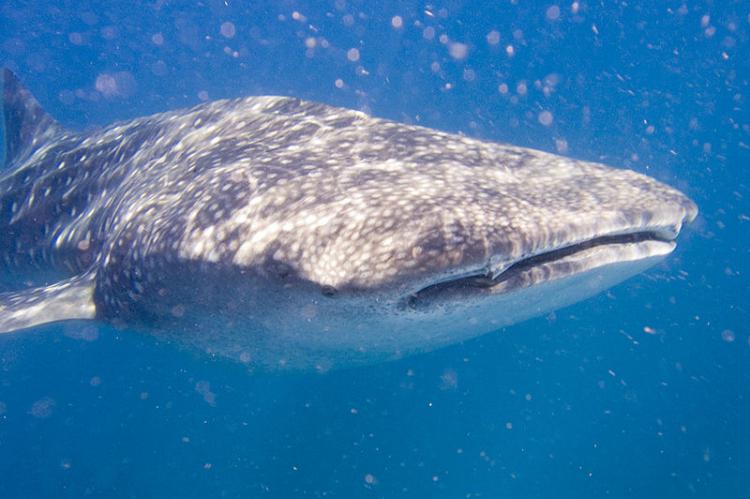Kenya rejects proposal to capture whale sharks
Government disallows plans to create artificial marine enclosure stocked with wild-caught whale sharks
Plans to create an artificial marine enclosure stocked with wild-caught whale sharks off the Kenya coast have been rejected by the government. The judgment, delivered by the National Environmental Management Authority of Kenya (NEMA), cited the proposed project would have been in contravention of Kenya's 1962 Animal Cruelty Act.
Concerns were presented by The Born Free Foundation and others at a Public Hearing held in Kenya in February 2013 and called for the proposal by Volker Bassen of Seaquarium Ltd to be rejected. Their sentiments were echoed by many people worldwide who wrote to key Kenyan decision-makers expressing their dismay.
"Born Free, working with regional marine scientists, local marine charities and other campaigners, mounted a high profile lobby against the proposed ‘Seaquarium' scheme, particularly on the grounds that it is unethical to incarcerate these magnificent creatures and that the venture undermined Kenya's rich legacy of conserving and promoting wildlife conservation and tourism in the wild," said Born Free Conservation Manager Aaron Nicholas .
Will Travers, CEO of the Born Free Foundation, congratulated NEMA on their decision and applauded the input of the many groups, experts and individuals that had opposed the project. The Foundation asserted whale sharks are an internationally important migratory species (recognized by the UN Convention on Migratory Species - CMS) and play a vital role in the marine ecosystem. Capture from the wild does not enhance conservation of the species and that greater protection of free-living whale sharks was the best way of ensuring their long-term future.
"We are determined to support actions that protect whale sharks throughout their fragile marine ecosystem while ensuring that benefits are shared with local communities,” said Travers. “ To that end, we plan to fund the training of boat skippers and crew off Mafia Island, Tanzania, later this year, to ensure that they understand and adhere to regulations concerning whale shark tourist viewing. We hope that we can extend this important initiative to Kenyan waters as part of a regional approach to whale shark conservation,” he added.


